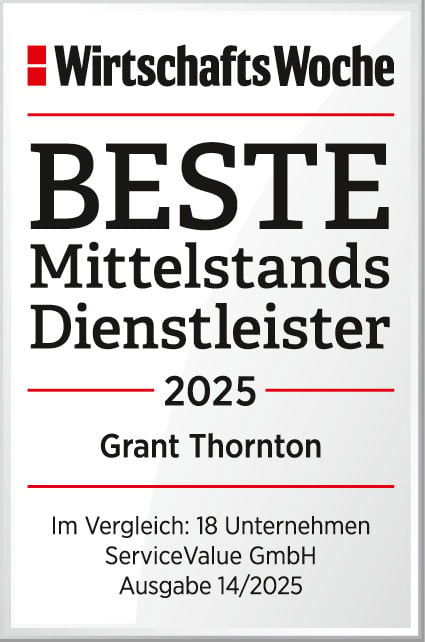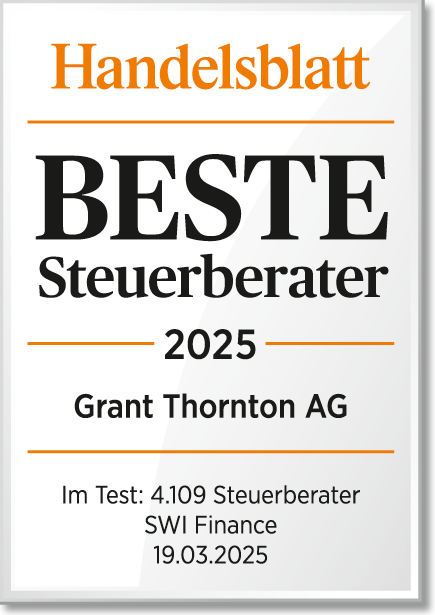Legally watertight solutions for energy taxes
Energy generation and distribution is connected with complex tax obligations. Companies must comply with numerous requirements to submit applications, notifications and filings – from electricity and energy tax all the way to participating in emissions trading. Errors or non-compliance can quickly result in a considerable financial burden or in penalties. We’ll help you minimise your risks, take advantage of tax benefits and meet your obligations efficiently and legally.
Our advisory is aimed at companies involved with energy generation or supply – from traditional energy suppliers and network operators all the way to self-generators and energy consumers such as industrial companies, commercial businesses, hospitals and local authorities. There are often untapped opportunities for tax relief or exemptions in these areas, which we can check and implement for you.
Overview of our services
- Analysis of your tax liabilities
Depending on their activities and energy consumption, businesses are subject to different tax requirements, particularly under the Electricity Tax Act (StromStG) and the Energy Tax Act (EnergieStG). We analyse which levies are relevant to you and whether there is any tax liability. - Review of potential exemption and relief
Energy and electricity tax law provide various exemptions and reliefs, e.g. electricity tax exemptions and relief on electricity and energy tax are available to self-suppliers as is network surcharge relief for energy-intensive and manufacturing companies if certain conditions are met. We check whether your organisation can take advantage of tax benefits and support you with claiming them. - Assistance with applications
Tax exemptions and refunds must be applied for on time and correctly from the relevant authority; formal permits are sometimes needed for claims. We’ll take you through the whole process and ensure that all the requirements are met.
- Support with application, notification and filing duties
Claiming benefits and relief goes hand in hand with application, notification and filing duties. For example, companies must regularly report their energy consumption to the responsible body such as the Central Customs Office (Hauptzollamt). We’ll support you in meeting these obligations on schedule. - Advice on compliant documentation
There are detailed requirements to keep records for the purposes of evidence related to tax reductions and exemptions. Records on fulfilling specific conditions to claim exemptions or relief also must be kept for many years. We’ll advise you how to keep compliant documentation and help you manage the necessary documents efficiently.
- Review of back-payments
If public authorities require back-payments, we’ll review the calculation based on the rules of energy and electricity tax law and the Fiscal Code (Abgabenordnung – AO). Unlawful back-payments can be contested. - Support when duties are infringed and dealing with matters
If deadlines are not kept, applications are incomplete or permits not applied for, we’ll help you deal with the matter and fulfil your duties. We take care to avoid or reduce any penalties for tax evasion or negligent understatement of tax, particularly by drafting an effective voluntary disclosure for the tax authorities under the Fiscal Code (AO). - Representation to the authorities and courts
We’ll represent your organisation in appeals against tax notices and support you in taking action at the fiscal courts or the Federal Fiscal Court (Bundesfinanzhof) if the authorities make an incorrect decision. We’ll also be glad to assist your organisation with external tax audits.
- Review of the obligation to take part in emissions trading
Enterprises that run high-carbon processes may be required to participate in emissions trading under the German Greenhouse Gas Emissions Trading Act (TEHG) or Fuel Emissions Trading Act (BEHG). We’ll examine whether your company is affected and what reporting obligations there are. - Compliant implementation and optimisation
Participating in European emissions trading (EU-ETS) or German emissions trading (nEHS) requires detailed planning. We’ll help you manage your emissions certificates in compliance with the law and advise you on optimisation strategies in accordance with TEHG or BEHG.
Trust Grant Thornton and our experts with energy taxes
We’ll advise you with well-founded knowledge of industry and experience on energy taxes – we’re reliable, practical and focused on relieving you financially and in compliance with the law.
As part of the global Grant Thornton network with over 73,000 experts in around 150 countries, we combine international market knowledge with regional insight – so you can achieve success.
Thanks to our offices in Germany we’re always close by. Our personal and flexible advisory makes sure your goals and expectations take first place.
Our awards
Frequently asked questions on energy taxes
Energy taxes are government levies on the consumption of energy, particularly electricity, heating and fuel. They regulate energy consumption and promote environmentally friendly action. In Germany it is primarily companies with high energy consumption that are subject to electricity tax (StromStG) and energy tax (EnergieStG). They primarily affect energy suppliers, industrial and commercial companies, hospitals and local authorities, among others. Some enterprises can apply for tax benefits or exemptions.
Companies in the energy sector have to pay various taxes according to activity, including:
- Electricity tax – due on consumption of electricity (section 3 StromStG).
- Energy tax – applies to fuels such as gas, coal and heating oil (section 2 EnergieStG).
- Carbon tax – part of national emissions trading for fossil fuels (section 3 BEHG).
- Concession fees – apply for use of public supply networks.
- Network tariffs & renewable energy surcharge – apply to companies depending on their network connection and electricity use
Companies should regularly check whether relief or exemptions are possible to exploit tax advantages.
- Electricity tax – taxes the consumption of electrical energy and is levied on suppliers. Some companies have a claim to relief (section 9b StromStG).
- Energy tax – relates to fossil fuels, such as diesel, heating oil and natural gas. Particularly relevant to companies that generate their own heat or energy (section 2 EnergieStG).
- Carbon tax (national emissions trading) – since 2021 companies that use fossil fuels must buy carbon certificates. This tax is gradually increasing and relates to industrial businesses and energy suppliers among others (section 3 BEHG).
While electricity and energy tax are levied traditionally on consumption, the carbon tax is designed to incentivise companies to move to environmentally friendly alternatives.
The deadlines depend on the type of tax:
- Electricity tax – registration and payment are monthly or annual and made to the Central Customs Office (Hauptzollamt), dependent on the consumption amount. Companies with low consumption file annually by 31 May of the following year (section 8 StromStV).
- Energy tax – filing is usually monthly here, too; larger companies must submit a tax return quarterly or annually (section 8 EnergieStV).
- Carbon tax (emissions trading) – companies must report their emissions by 31 July of the following year and submit relevant carbon certificates by 30 September (section 6 BEHG).
Late filings or payments may lead to back-payments or penalties.
Participating in European emissions trading (EU-ETS) or German emissions trading (nEHS) is compulsory for certain companies:
- EU-ETS – applies to large industrial installations, power stations and aviation. Companies with an annual carbon emission over 20 MW in net heat supply are affected.
- National emissions trading (nEHS) – companies have been obliged since 2021 to buy carbon certificates if they use fuels such as diesel, heating oil and gas (section 7 BEHG). This particularly concerns mineral oil companies, energy suppliers and certain industrial operations.
Companies should regularly check whether they fall under the scope of this so they can take action on time.
National emissions trading (nEHS) was introduced in Germany in 2021 and affects companies that place fossil fuels on the market or use them (section 3 BEHG). The goal is to reduce carbon emissions by increasing prices. Companies need to buy a certificate for every ton of carbon they emit.
Companies in energy-intensive industries can apply for relief. Businesses should quickly develop a strategy to reduce carbon to avoid financial disadvantages.
EU-ETS stands for European Union Emissions Trading System, which has been the EU’s key climate change mitigation instrument since 2005. It is based on the cap and trade principle: the EU sets an upper limit for carbon emissions and affected companies must hold a certificate for every tonne of carbon they emit. Unused certificates may be traded, which environmentally friendly companies can take advantage of. The certificates are gradually reduced in order to reduce emissions and to foster investment in sustainable technologies.











